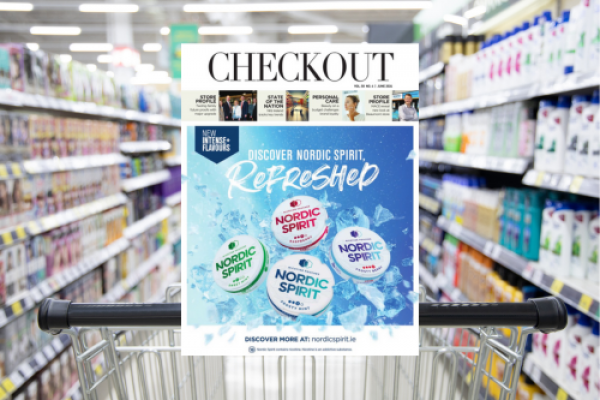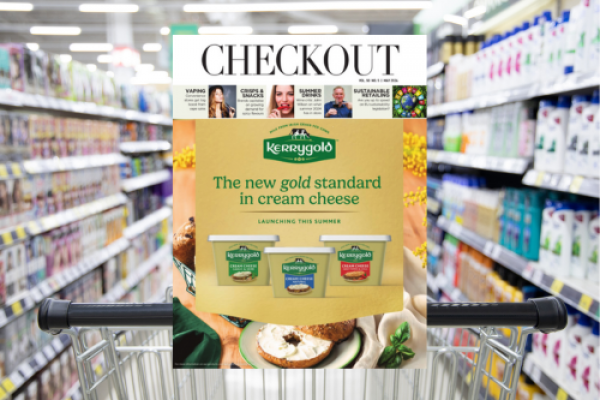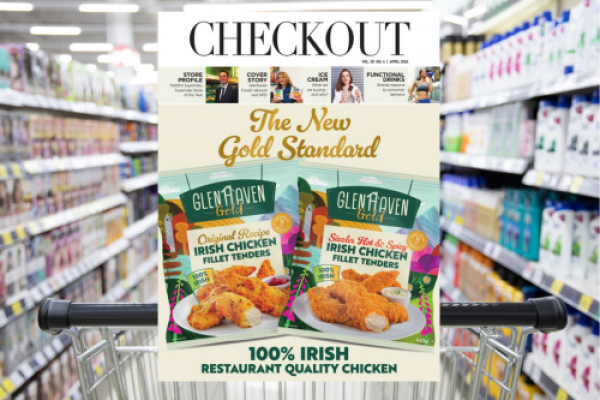The Spar International Congress came to Killarney, Co Kerry this summer, to commemorate the 50th anniversary of the Spar brand in Ireland. Following the event, Stephen Wynne-Jones caught up with Spar International managing director Gordon Campbell. This article first appeared in the June 2013 edition of Checkout.
Spar may not be in the business of ‘selling ice to the Eskimos’, but the fact that the group has been able to successfully sell an Irish-developed noodle concept in its Chinese stores comes pretty close. That concept, Kitsu, is one of many (others include the Treehouse juice and smoothie bar and the Spar Wine app) developed here that have been earmarked for international expansion, according to Gordon Campbell, managing director of Spar International, who was in Ireland to address the Spar International Congress, held in Killarney in June.
“Ireland has really pioneered the concept of ‘food to go’ and ‘food to stay’; the Spar store at the corner of Dame St and George’s St is one of the most advanced in terms of that,” Campbell tells Checkout. “But if you look internationally, it’s a benchmark we have rolled out to other countries; Cape Quarter in Cape Town, Novgorod in Russia and Qingdao in China, for example.”
New Frontiers
Irishman Campbell, who has headed up Spar International for 20 years, is particularly keen to talk about China and Russia, which since joining the Spar family - in 2004 and 2000, respectively - have grown exponentially. China accounted for €1.19 billion in sales last year, while Russia hit €1.13 billion, with both countries surpassing Ireland in terms of sales (€1.08 billion) for the first time. “They’re going to grow very fast now,” he explains. “We would expect to see Russia and China reach €2 billion in sales each by the end of 2015, which means they would have doubled in size in three years.”
The reason for this potential growth is partly due to geography, partly due to Spar’s willingness to work closely with its partners in each country (11 in Russia and six in China) on developing an efficient supply chain. “In China, we have assisted with the development of four distribution centres, while in Russia, around six of the 11 partners we work with now have a distribution centre. It’s not just about developing a distribution centre itself, but building the integrity of the whole logistics structure; we work with growers, we work with processors, and we establish chilled supply chain routes to our stores. “Many of our partners would have started out as regional retailers; Mr Wang, in Shandong province for example, has a target market of 93 million people. A city like Qingdao, where we have a distribution centre, has a population of eight million people. The potential is huge.”
Middle East Expansion
The Congress also marked the formal accession of two new countries into the Spar family, with Qatar and Lebanon the first Middle Eastern territories to come ‘under the tree’ since Abu Dhabi joined in 2011. “We work with a partner there called Abu Dhabi Cooperative, and have discussed options with them about entering into additional Middle Eastern countries. We plan on opening our first stores in Qatar and Lebanon later this year or in early 2014, and are also close to signing an agreement in Oman. Our target by the end of 2015 is to have 30 stores in operation in the region.” Hypermarkets are likely to be the format of choice initially, with a view to developing other formats in time.
A Strong Format
One of the strengths of the Spar International organisational structure - “we have a very complex, but flexible business structure” – is that concepts and store formats that become benchmarks in one country, can be adapted and developed for new markets. For example, in Ireland the Spar concept is based predominantly around convenience (Spar) and supermarkets (Eurospar). However, in Austria, the group’s strongest territory with €5.56 billion of sales last year, hypermarkets are the core offering.
“We have demonstrated the strategic benefit of having a wide geographical footprint for the organisation, which has benefited us during the economic downturn. Spar Austria, for example, has grown by €1 billion in sales since the downturn started, in 2007, by continuing to invest in new stores, new hypermarkets, and investing heavily in private label. Spar South Africa [€4.66 billion in sales last year] has also grown by a billion euro in sales.”
And new concepts are being rolled out all the time. “What you find is the same developments work in different markets, but often at different times. A simple example of this is the opening of stores in airports, or at train stations; we now have thriving airport stores at Vienna airport, and Dublin airport. It is a relatively new concept for us.” New concepts are also crucial in assisting regions that have been hit hardest, with Campbell citing Greece and Italy, and to a lesser extent Ireland and Hungary, as countries that have been burdened by a prolonged downturn in consumer sentiment. “We’ve seen increased investment in store redevelopment, the development of promotional ranges and private label, and the establishment of a strong foothold to enable our members to trade strongly out of the recession. Working together is very much the essence of Spar.”









